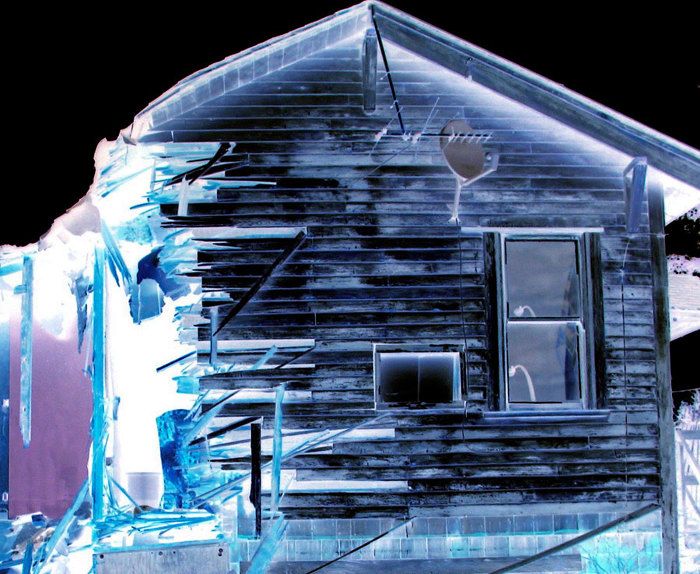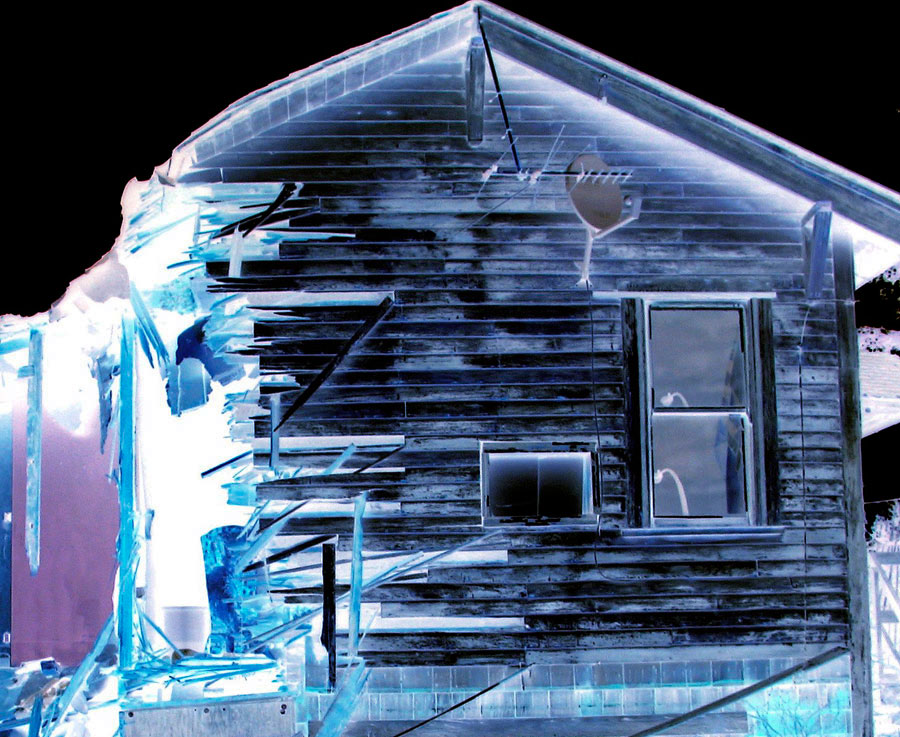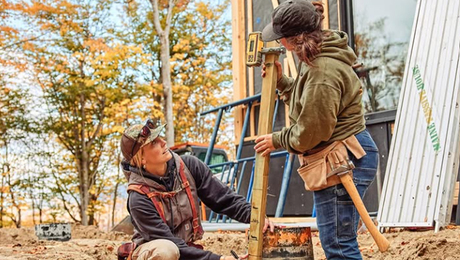Cash Flow: How I Wrecked My Business, Screwed My Friends, and Almost Destroyed My Marriage (Part 2)

BY MR. X
The housing-market collapse pushes one struggling homebuilder’s business over the edge, but it doesn’t break his spirit
As the federal government and the media started to use the term recession, a cash-flow crunch made business as usual impossible for our company. By fall of 2008, bills were late, accounts were frozen, employees were stressed, and relationships were strained. But we still felt that the recession would be short term and that we could power through. We had one spec house under contract to sell at the end of the year, a couple of others verbally spoken for, and several hard leads.
RELATED ARTICLES
Change orders can help avoid dreaded lawsuits
20 considerations that help a project run smoothly
The business case for ‘smaller is better’
We met with the majority of our subs and suppliers to create survival plans, sort of an informal Chapter 11 reorganization. Those conversations were some of the hardest I have ever had in my life. Everyone was in the same boat, struggling day to day with their own economy-related issues. Folks were obviously disappointed that we couldn’t pay our bills in entirety, but for the most part, they seemed glad that we were communicating with them and trying to save the business.
Unfortunately, the spec house didn’t close in December. The appraisal came back 15% below our contract price. People who were close to contracts backed out. Leads dried up as potential buyers decided to wait out the recession. Because our credit accounts were mostly frozen at that point, we couldn’t get materials, and without materials, we couldn’t build, which made it impossible to get draws and pay our accounts. The company could no longer operate. We had to lay off the remainder of employees (including myself), except for the office manager, who stuck around to pick up some of the pieces and sweep up the dust. I had to fire my best friends.
Out of all of this doom and gloom came a beacon. Our second daughter was born. I had some real concerns heading into her delivery (my concerns were rightfully dwarfed by my wife’s, who was doing the heavy lifting). I was worried about the potential collapse of the business. I was terrified about how I could possibly well up more love than I already had for my wife and first daughter. At the moment of delivery, when I was tasked with determining the gender of our new baby, these concerns and distractions dissipated. I focused on obvious priorities.
I kept trying as hard as I could for a couple of months more, but it became obvious into 2009 that I was fighting windmills. We decided to close, and that was pretty much the end of the business and the end of communication with my partners. This part is especially painful since one of them was my freshman roommate in college and a very good friend. I’ve had a lot of varying emotions about the loss of that particular friend and colleague. We had been through a lot together.
I have been angry, sad, and glad that he and I don’t talk anymore. Maybe he can’t bear to think about the difficulty and failure that we went through. Maybe he blames me, or just doesn’t care. Honestly, none of that matters. Over the past few months, I’ve thought less and less about that. I want to make a conscious decision to spend my energy on my focused goals and my family. I recently began milling through generations of my family belongings. Pictures, artifacts, furniture, old cameras, military decorations, books, newspapers. More than 120 years of roots. A local author is writing a historical account of my family, so we spent a couple of days going through dozens of boxes. I had a lot of time to contemplate family while going through these memories, and one thought never crossed my mind, although it was blatantly obvious to the author. “Why do you still have all of this stuff?” she asked. There was never a question about purging the family history. I inherited the family mess about a dozen years ago, and I have moved it several times. It’s dirty, heavy, voluminous material that is absolutely no fun to move. That never mattered, although my wife probably thought I was crazy. Why did I put us through this labor of preservation? Family. Loyalty. Love. History. Origin. To me, there was no question. It had to be done out of respect and a sense of who I am. Family is hard work, relationships are hard work, but it’s the most important work. It’s worth it.
As I learned, businesses end, but liabilities linger. I am responsible for anything that I signed as a personal guarantor: construction loans, truck loans, land loans, supplier credit accounts, even the bottled-water cooler. So the bank is coming after me for the unsold homes. We have six completed and two unfinished. One is just a weathered foundation, and the other is nearly complete, in need of countertops, decks, and rails. Some of those will be sold on the courthouse steps, and our corporate partner may try to hold some until they sell. When the plaintiffs come knocking, I will declare personal bankruptcy. This was the last place I ever imagined myself. I had a 740 credit score at the beginning of the year. Life happens, I guess, so I choose to roll with the punches.
Learning from my mistakes and moving on
Toward the end, everything else in my life had been eclipsed by the trials and tribulations of our company, and I was stressing myself into depression and poor health. At my lowest point, I finally realized that nothing was more important than my family and my sanity. My business had failed, but I had lots to be happy about in my life. I had a beautiful wife and daughter, with another child on the way. My mom and dad loved me. It was time to move on.
I did not walk away from my responsibilities with our company. I have paid a big price emotionally and financially, but I made a conscious decision to stop focusing on what I couldn’t do and start focusing on what I could do.
I went to the doctor and got a prescription for a mild dose of happy pills. It took a while, but my brain finally reached equilibrium with the chemical. A few months later, I was eating, sleeping, and smiling again. I had established a mutual loyalty and dedication with my wife and daughters and feel every day like the richest poor man in the world. I’m happy. Is it OK that I’m happy? I still wonder about that. I screwed up, and I can’t pay anybody back with money. I do know how to build a good green home, so at this point in my life, I am dedicated to helping others improve their green-building skills.
[[[PAGE]]]
Takeaways
Here are some things you can do to help your business thrive in good and bad times. Make the tough decisions now so that you don’t have to learn from experience like I did.
Lessons learned the hard way
· Have a strong business plan. If you don’t have the business skills to write such a plan, get help.
· Make profitability a major goal from the beginning, or your business won’t be sustainable. Don’t spend money on things you can’t afford. Spend money on marketing and development only when you have the money to spend. If you do great work, then you will get more work to do. You can conquer the world later.
· Review your mission and business plan in set intervals. Revise as necessary, but don’t lose track of what makes you and your business tick. Write down the boundaries of your comfort zone, and stick to it.
· All businesses are susceptible to failure. Under the right conditions, a weakness in a given area can cause a company to bleed out. Plug all of the holes quickly, and your boat will stay afloat for the long term.
· Define relationships and day-to-day responsibilities before entering a partnership. A shareholder’s agreement is not enough in most cases. Spelling out everyone’s job and expectations will make for much smoother sailing, especially in high seas.
· All of the marketing and accounting in the world will not save your company in a recession. A sustainable business needs all of its bases covered: great product, low overhead, cash reserves, and so on. Be prepared for a downturn at any time.
· Don’t take upcoming property closings for granted. That is fool’s gold for sure. You can spend the money when it’s in the bank—but save 10% for callbacks.
Paying a debt with no money
A few months ago, I got an email from the man who designed the website for our company and provided tech support since the company’s earliest days. When the business closed, we still owed him money. His email made it clear that he was angry about my inability to pay him back. He questioned my integrity and my character. We had known each other for a long time, and his email was very hard to read. I had to call him.
We talked for a long time. At first we both got pretty frustrated. He wanted money, and I didn’t have any. But we kept talking, and eventually we stopped focusing on what I couldn’t do and started focusing on what I could do.
I could offer my green consulting services to his company. Together, we could create a social-responsibility plan that incorporates green initiatives into his office space and operations. This ethical investment would bolster his company’s relationship with current employees and attract new clients that are like-minded.
We agreed that this was a positive for both of us, and we are now working on the initiative. We also agreed not to discuss the past. I can’t and won’t forget what happened with our business. For both of us, however, it’s time to heal and look forward.
If you missed the first half of this account of how I built a thriving construction business and then lost it, read it here.
Fine Homebuilding Recommended Products
Fine Homebuilding receives a commission for items purchased through links on this site, including Amazon Associates and other affiliate advertising programs.

Reliable Crimp Connectors

8067 All-Weather Flashing Tape

Affordable IR Camera



























View Comments
Good stuff, thank you so much for sharing. I have my own tale that I'd love to be able to share sometime. I'm still in business but it took a path of destructive mistakes to get back to what brings me peace in life.
Take Care - Joe
Thanks for sharing your story.
This is great stuff. Many thanks.
This is the real Mr. X. I can't convey how helpful writing this article was for me. It felt so good to organize my thoughts and log what happened at one of the most incredible times of my life. It was cathartic, healing and therapeutic to say the least. I mean, we all have life experiences, but in this fast-paced life, we rarely have time to compute what the hell is going on to us and around us. I'd encourage those with similar experiences to WRITE IT DOWN! Get it out of you, so that you can move on. It helps emotionally and physiologically. I have a stronger family, marriage, career and character because of my experiences, strengthened by the writing process. The biggest gains that I have achieved through this is a healthy dose of humility and reorganization of my priorities both personally and professionally.
A HUGE thanks to the incredibly professional, human and compassionate editors at Fine Homebuilding (Kevin Ireton and Dan Morrison) that helped to pull this out of me. They actually made me sound like a good writer! I really don't like writing very much. It takes too long.
Thanks also for all of your comments here. I was feeling a generous amount of trepidation about putting all of this out here in the public, but the reader comments have made the process all that more incredible. There was not a solitary motivator for writing this story. Yes, I wanted to tell about what happened to me, but I also wanted to let others know that everything can be ok, that we can go through some of the darkest periods of our lives and careers and come out better for it on the other side.
I can't wait to hear what others might write.
You are to be commended on collecting your thoughts and presenting them to us all. I have been on the short end of a backruptcy...as an employee...and if the ownership had communicated the difficult situations as the business began to spiral down the tubes...instead of lying and cheating to try and save "their" company until the very end...all of us ....friends, employees, creditors, bankers etc...would have at least had a bit of compassion for those ownership people. Instead, it all went up in flames and we all got burnt.
I am sure that this process has been cathartic for you and perhaps some of those former friends and collegues will have the opportunity to read your prespectives and also find it in them to forgive...not to forget...but at least to understand?
As you say...your Family and your Health are the things that really matter. Keep on moving forward!
sorry about your hardship mr.X these last few years have been a struggle for everyone. I live in a suburb of D.C. often considered to be recession proof. well it isnt! we havent put an addition on in 3 years and thats all we did. if it werent for the FDIC this would have been a DEPRESSION.
I am really glad that you all seem to have enjoyed the article. Initially we were going to publish the author's name along with the article, but as it unfolded, i realized that publishing annonymously may make it easier for other folks to come forward with their stories of business mistakes.
We would love to help you organize your thoughts and convert that into an article that we can publish here. JoeStilwell (and any others) -- if you'd like to put one of these together, contact me (dmorrison[at]taunton.com) and we'll get to work on it.
Dan
Great articles, Organicthink. I consider myself extremely fortunate that I was able to extract myself from the construction business without the acute problems you experienced. However, looking at the ups and downs of 25 years as a contractor, I definitely had my share of physical, mental, and financial health problems over the years. I think we both found our true passions and ultimately, our best career paths through being contractors. While sometimes I am angry that it took me so many years to get here, I suppose that I probably wasn't ready and earlier. Hang in there, we have lots of good years ahead of us.